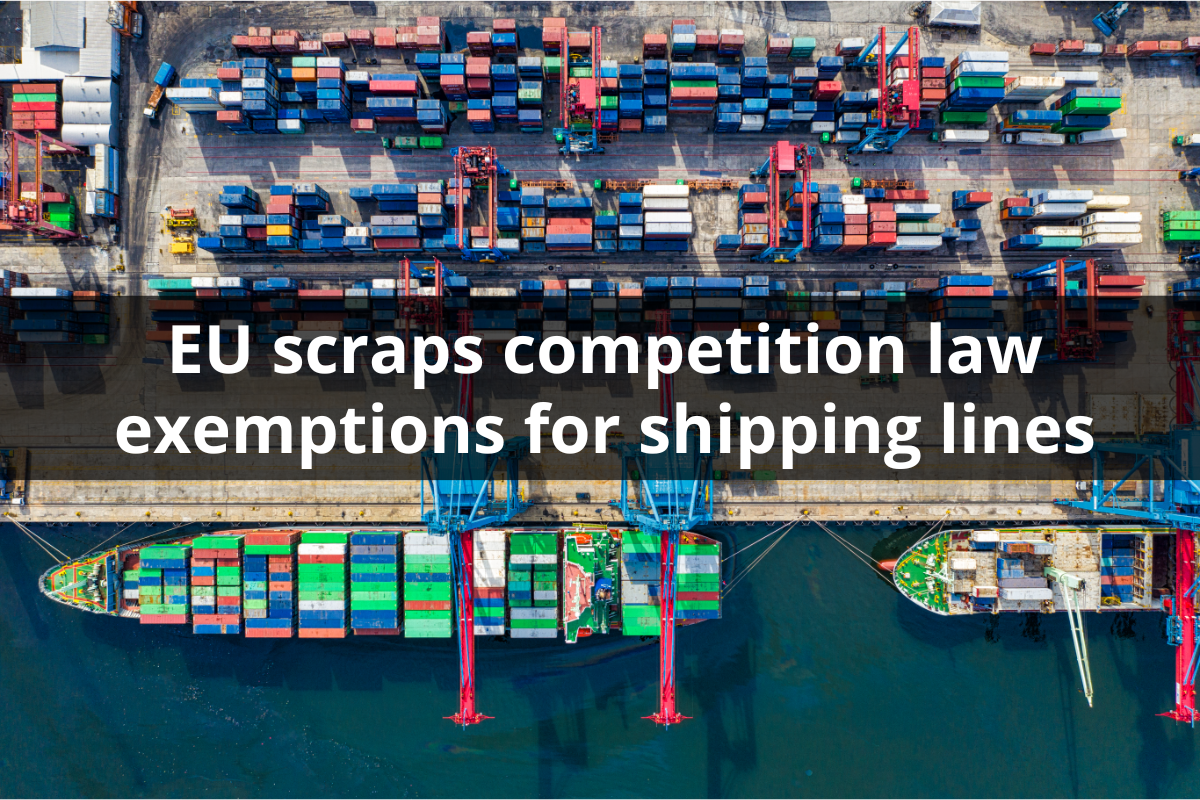Clampdown comes at critical time for container companies whose earnings have fallen since the end of lockdown.
Article source is the Financial Times.
“The EU has axed the shipping industry’s exemption from competition laws, in a blow to shipowners whose profits have long been bolstered by their ability to share vessels.
The European Commission said on Tuesday that the exemption, which for years has enabled shipping lines to place containers on each other’s ships, no longer appeared “fit for its purpose” and will not be renewed when it expires next April.
While the decision does not in itself end co-operation between shipping groups, it has the potential to upend the business of global trade, which has become increasingly dominated by a handful of container shipping companies which control most of the market through so-called alliances.
The move is also the latest sign of a clampdown on the shipping industry, which thanks to its international nature has historically proven difficult to regulate. It comes at a critical time for container carriers, whose earnings have plunged following a period of bumper profits during the Covid-19 pandemic, when an online shopping boom combined with lock jams at ports caused demand to outstrip supply.
“It really is a big deal,” said Mike Garratt, director at MDS Transmodal, a shipping consultancy whose research informed the commission’s decision. “There were nine companies who almost seemed to be beyond the law, controlling most of the value of world trade. This has dramatic implications for the deep sea shipping sector.”
The world’s nine largest container shipping lines, several of whom have grown through acquisitions of smaller rivals, have formed three separate alliances over the past decade, allowing them to control supply and put a floor under the cost of shipping during years of low earnings.
But when freight rates rose to record highs during the pandemic, profits soared, infuriating customers who faced severe delays importing and exporting goods through congested ports. During the three years to 2022, container shipping groups made as much money as they had during the previous six decades combined, according to consultancy Drewry.
The commission, which received submissions from 33 shipping customers, said that the capacity shortages recently faced by these businesses had “reignited the debate” over the industry’s so-called Consortia Block Exemption Regulation (CBER). Once subject to EU antitrust rules, shipping companies will have to review the legitimacy of their co-operation agreements, deals the European Commission has the power to break up and fine.
“Shipping has undergone significant structural changes, such as carriers’ consolidation, global alliances and vertical integration, resulting in new market conditions, which became apparent during the coronavirus pandemic,” said Didier Reynders, the EU competition commissioner. “A dedicated block exemption for shipping lines is no longer adapted to those new market conditions.”
Co-operation between shipowners has been exempted from EU competition rules through different regulations since 1986. The CBER, adopted in 2009 and renewed twice since, has guaranteed the legitimacy of consortiums involving companies whose combined market share does not exceed 30 per cent.
The announcement this year that the world’s two largest container shipping groups, Mediterranean Shipping Company and AP Møller-Maersk, had decided to end their vessel-sharing alliance had prompted speculation over the future of such agreements. But the move was seen as a consequence of the two companies’ diverging strategies and others have since called for the alliances to continue.
The commission’s decision has been resisted by the shipping industry, which also faces growing pressure in the US, where President Joe Biden last year promised to “crack down on ocean carriers whose price hikes have hurt American families”.
John Butler, president of the World Shipping Council, said the lobby group disagreed “with the logic behind the decision”.
The WSC highlighted that the commission’s decision does not outlaw co-operation between shipping groups. Instead, such agreements between shipping lines operating to and from the EU will have to be assessed under antitrust regulations.But Butler warned that “the shift to general EU antitrust rules will create a period of uncertainty as carriers adjust to the new legal structure”.”
We offer storage services in our facilities in Hungary for our customers. Upon selling their products our customers repose all confidence in us with building shipments, packing, labeling, invoicing and transport for B2B or B2C delivery. You may meet various AI applications at logMASter which help silently in the background to provide an optimal service to you.

